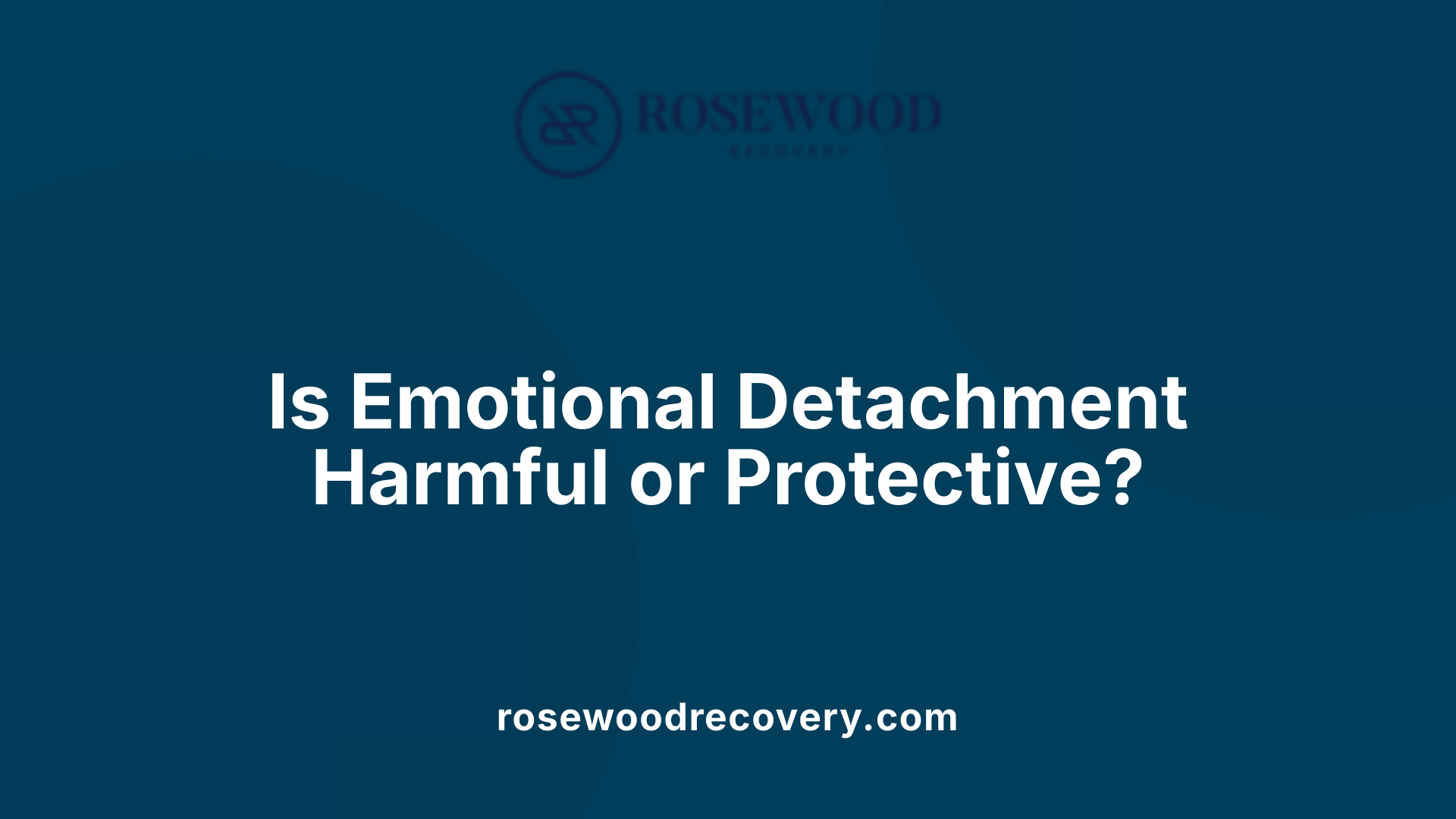Understanding the Roots of Emotional Detachment
Emotional disconnection from loved ones can be a complex and distressing experience. It often develops over time as a protective response to stress, trauma, or mental health challenges. Recognizing its underlying causes and symptoms is the first step toward healing, fostering healthier and more fulfilling relationships.
What is Emotional Detachment and Why Does It Occur?

What is emotional detachment?
Emotional detachment is a state where a person struggles to connect emotionally with others or sometimes even with their own feelings. It involves feeling numb, disconnected, or indifferent toward relationships, activities, or personal emotions. This condition can serve as a protective shield, helping individuals avoid stress, pain, or unwanted emotional drama.
Sometimes, emotional detachment develops gradually over time, especially after ongoing stressful experiences or trauma. Other times, it can occur rapidly due to a single traumatic event. It often results in signs such as feeling empty, losing interest in activities or people, and showing little empathy or affection.
Causes of emotional detachment in various contexts
There are many reasons why emotional detachment may develop. Past trauma, such as abuse or neglect during childhood, can make someone believe that emotions are unsafe or unimportant. Mental health conditions like depression, PTSD, bipolar disorder, and personality disorders are also linked to emotional numbness.
Medications, especially certain antidepressants like SSRIs, can cause side effects including emotional blunting. Substance misuse and neurological conditions, such as brain injuries or schizophrenia, can contribute too.
External stressors like exposure to distressing news and ongoing life challenges can trigger detachment as a coping mechanism. Sometimes, individuals intentionally distance themselves to protect their mental well-being—a voluntary form of emotional detachment. In contrast, involuntary detachment happens as a response to uncontrollable factors like trauma or medical issues.
Difference between voluntary and involuntary detachment
Voluntary emotional detachment is a conscious choice, often used to shield oneself from painful feelings or toxic environments. For instance, someone might emotionally withdraw from a toxic relationship or overwhelming situation.
Involuntary detachment, however, occurs unconsciously, usually due to past trauma, mental health conditions, or brain injuries. It often manifests as emotional numbness or difficulty feeling or expressing feelings without the person consciously deciding to detach.
Understanding this difference is important because voluntary detachment can sometimes be a healthy self-protection strategy, whereas involuntary detachment may require professional help to address underlying issues.
Moving Toward Reconnection and Emotional Wellness
Addressing emotional disconnection requires patience, self-awareness, and often professional support. By understanding its roots and practicing strategies like emotional processing, open communication, and self-care, individuals can rebuild trust and intimacy with loved ones. Remember, healing is a gradual process — with consistent effort, reconnection and emotional resilience are attainable.
References
- Emotional Detachment: What It Is and How to Overcome It - Healthline
- Episode 021: How to Fix Emotional Detachment
- Emotional Disconnection in Relationships - The Gottman Institute
- Why Don't I Feel a Connection to My Family? - Psych Central
- How to Emotionally Detach from Someone: 7-Day Healing Guide
- 17 Signs of Emotional Detachment in Marriage and How to Fix It
- What to Do When You Feel Emotionally Disconnected in Your ...
- Emotional detachment: Symptoms, causes, and treatment
- How to emotionally detach from someone - Grow Therapy
- How to Cope with Feelings of Emotional Disconnection from Loved ...




